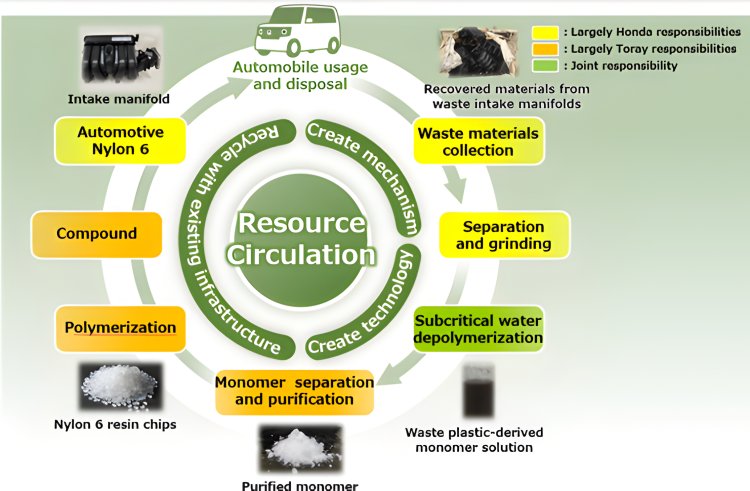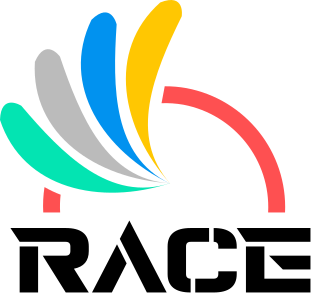Toray and Honda partners for Nylon Recycling for Automotive Applications
In order to put up a pilot facility with a processing capacity of 500 metric tons per year of raw resin and undertake validation testing with it, Toray and Honda plan to use that project.

Tokyo, Japan- Toray Industries Inc., announced that it had formed an agreement with Honda Motor Co. Ltd., to develop a chemical recycling method for glass-fiber reinforced nylon 6 parts recovered from end-of-life vehicles. This process, which involves depolymerizing using subcritical water and regenerating the materials as caprolactam, a raw monomer, has already started to be verified by the two.
When creating a method that successfully depolymerizes nylon 6 using subcritical water, the two businesses concentrated on its high permeability, dissolving power, and hydrolysis effect on resins. Water at high pressures and temperatures is referred to as subcritical water. It can depolymerize nylon 6 to provide large quantities of raw monomer in a few dozen minutes without the need of catalysts or additives. This monomer can be separated, improved, and repolymerized to create nylon 6 that functions just like brand-new material.
In order to develop a decarbonized circular economy system, including to evaluate recycling systems for plastics and other resources, the Ministry of the Environment adopted this technology for a fiscal 2023 project. In order to put up a pilot facility with a processing capacity of 500 metric tons per year of raw resin and undertake validation testing with it, Toray and Honda plan to use that project.
Recycling discarded automobile plastic components into new automotive materials is the initial phase in this project. Intake manifolds will be used by the two businesses to create depolymerization, monomer separation, and refinement technologies for engine intake system components. By roughly 2027, they hope to use these technology to recycle chemicals in car resin parts.
In the future, they plan to extend the use of their chemical recycling technique to include applications in clothing, films, and other non-automotive fields. They plan to build up a chemical recycling program for nylon 6 in Japan as well as invite other businesses to join their endeavor. This project would reduce greenhouse gas emissions while promoting a circular economy.
Contributing to a future where resources are handled sustainably is one of the objectives of the Toray Group Sustainability Vision for 2050. Toray will continue investing in research and development in order to support a sustainable, circular economy and to carry out its business mission of advancing society by creating new value while achieving sustainable growth.


